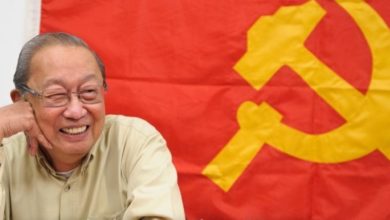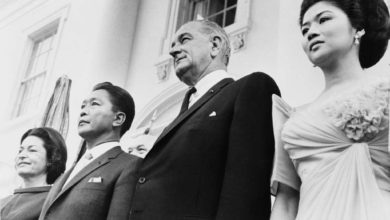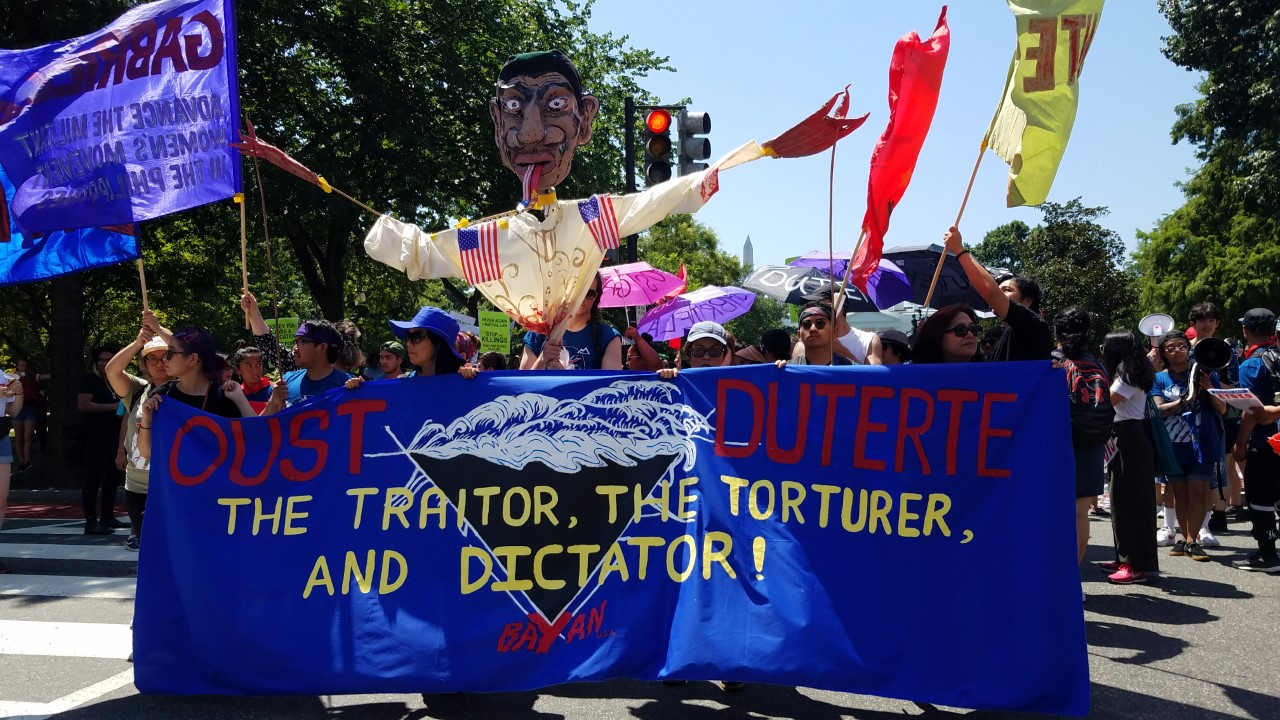Mario Santos is a member of the Secretariat of the Alliance for Just and Lasting Peace in the Philippines.
In April 2005, the European Union Court denied Professor Jose Maria Sison’s request to examine files with information on the European Union’s decision to include him on its list of “terrorists.”
Sison is currently the chief political consultant of the National Democratic Front of the Philippines. Before Europe labeled him a “terrorist,” the United States put him on its foreign terrorist list. Dubbing Professor Sison a “terrorist” is part of the U.S. government’s ongoing campaign against revolutionaries all over the world.
The Council of the European Union placed Professor Sison on its list of “terrorists” in 2002. In so doing, his personal assets were frozen because they were supposedly being used to “facilitate or commit terrorism.” The allegations are baseless.
The European Council based their decision to categorize Professor Sison as a “terrorist” on a file that they have repeatedly refused to let him and his attorneys examine. His attorneys appealed the refusal. On April 26, 2005, the European Court of First Instance in Luxemburg affirmed the decision of the Council. This decision is still subject to appeal, which we are committed to pursue.
Professor Sison’s head counsel, Belgian lawyer Jan Fermon, and the International DEFEND Committee immediately denounced the court’s decision, calling it “chilling.”
Why Sison is a target of U.S. imperialism
Originally from the Philippines, Professor Sison has lived in the Netherlands since Jan. 23, 1987. As founder and first chairman of the Central Committee of the Communist Party of the Philippines, he was imprisoned and tortured under the Marcos dictatorship from 1977 to 1986.
He was released when the Marcos regime fell in 1986. Professor Sison then traveled abroad to give university lecture tours in 25 countries. When his life was threatened in the Philippines by reactionary military circles, he relocated to the Netherlands, where he has been living for almost two decades.
In the early 1990s, the NDFP and the Government of the Republic of the Philippines engaged in peace negotiations. Professor Sison, in his role as chief political consultant of the NDFP negotiating panel, contributed to the forging of several important agreements between the NDFP and the GRP.
In the aftermath of Sept. 11, 2001, the United States got involved directly in military operations in the Philippines. The U.S. military is now planning to reoccupy the military bases it was forced to abandon in 1992 under the pressure of a broad mass movement in the Philippines. And the GRP negotiating team has been demanding that the NDFP sign a capitulation agreement. Such an agreement would violate the previous agreements, which require the GRP-NDFP peace negotiations to address the root problems of the armed conflict.
To pressure the NDFP, the United States included Professor Sison on its “foreign terrorist” list on Aug. 12, 2002. The very next day, the Netherlands did the same. Professor Sison thus was deprived of his basic rights: his social allowance and health insurance, and was ordered to leave his house.
Lawyers filed a case before a Dutch court, but before it concluded, the European Council added Professor Sison’s name to the European Union’s “terrorist” list.
It is obvious that the decision to put Professor Sison on the “terrorist” list was politically motivated. The foreign affairs secretary of the GRP, Blas Ople, stated publicly that Professor Sison would be taken off the list if the NDFP signed the capitulation agreement proposed by the GRP.
But Professor Sison has nothing to do with terrorism. He publicly and strongly condemned such acts in the past. The justice minister in the Netherlands stated that there are no grounds to begin a criminal investigation against him. No criminal proceedings are pending against him to this day. And the amount of money in the frozen bank account never exceeded $2,000 during the last 10 years. That should make it very clear that the sanctions imposed on Professor Sison are unwarranted and unjust.
A case based on a secret file
Professor Sison immediately requested access to the documents that were submitted to the European Council that became grounds to publicly label him a terrorist and to punish him as such. He made this request under Regulation (EC) No. 1049/2001 of the European Parliament—a general “transparency” regulation—which allows any citizen to request access to European Council documents.
The Council, however, refused to give him access, arguing that “disclosure of [the reports] and of the information in possession of the authorities of the Member States combating terrorism, could give the persons, groups or entities which are the subject of this information the opportunity to prejudice the efforts of these authorities and would thus seriously undermine the public interest as regards public security.”
In the Council’s view, the “disclosure of the information concerned would also undermine the protection of the public interest as regards international relations because third States’ authorities [we]re also involved in the action taken in the fight against terrorism.”
The Council also stated that some documents had been returned to the member states that produced them. It said that it could not disclose the identity of these member states because they refused to be identified.
Professor Sison filed an application to annul this decision of the European Council—in fact, there were three consecutive decisions of the same kind. This case is subsidiary to the main case involving Professor Sison.
In the main case, Professor Sison is requesting that the court annul the European Council’s decision to place him on the “terrorist” list in the first place. This application is still pending before the Luxemburg court.
Although the case on access to documents is subsidiary to the main case, both are inextricably linked. The April 26 decision of the Luxemburg court—denying Professor Sison’s application to review the documents used against him—used the main case as an excuse for not ruling in his favor.
In summary, the court reasoned that the question of whether Professor Sison can have access to the documents must be resolved in the main case, not a subsidiary one. The court also said that the European Council rightly considered the requested documents as sensitive, thus, it was fine to keep them off limits: “In view of the nature of the document requested, the Council was therefore able to consider, rightly, that disclosure of that document could compromise the position of the European Union in international cooperation concerning the fight against terrorism.”
Both lines of argument are worrisome. The decision of the Court is a threat to transparency and the right to a fair trial.
Like any citizen of the European Union, Professor Sison should have access to documents that explain the basis for European Council decisions, especially decisions as serious as labeling a person a “terrorist.”
‘Hands off the Philippines!’
The Alliance for Just and Lasting Peace in the Philippines condemns the labeling of Professor Jose Maria Sison as a “foreign terrorist” by the United States and the European Union. It was an immoral, arrogant and illegal act by these imperialist powers.
Although the AJLPP’s central demand is to resume the peace talks in the Philippines, we also demand that the United States and European Union remove Professor Sison from their respective “terrorist” lists. No doubt, this would help the peace talks resume. The United States also must stop all intervention in the Philippines.
AJLPP demands legitimate representation with the GRP so that the peace talks can proceed legitimately. Aside from legitimate representation, AJLPP demands that the GRP be responsive to the needs of the people, stop wanton violations of human rights, and, by all means, comply with the agreements previously signed by the GRP and the NDFP—the Hague Declaration, the Comprehensive Agreement on Respect for Human Rights and International Humanitarian Law, the Joint Agreement on Safety and Immunity Guarantees and others.
11 5 minutes read






